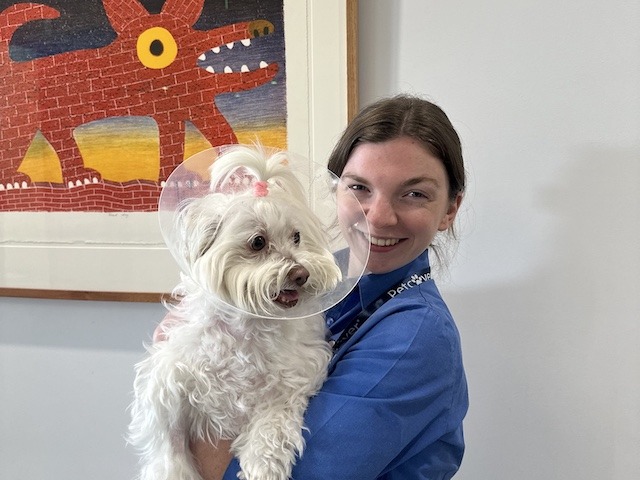Senior dogs with kidney disease typically present to the vet with various signs and symptoms, which can vary depending on the stage of the disease.
Common Signs and Symptoms of Kidney Disease in Senior Dogs:
- Increased Thirst and Urination:
- Drinking more water and urinating more frequently, including accidents in the house.
- Decreased Appetite and Weight Loss:
- Reduced interest in food, leading to weight loss and muscle wasting.
- Vomiting and Nausea:
- Frequent vomiting, nausea, and sometimes diarrhoea.
- Lethargy and Weakness:
- Decreased energy levels and general weakness.
- Bad Breath (Halitosis):
- An ammonia-like odor in the breath due to the accumulation of toxins.
- Poor Coat Quality:
- Dry, flaky skin and a dull coat.
- Mouth Ulcers:
- Sores in the mouth due to toxin buildup.
Treatments for Kidney Disease in Dogs:
- Dietary Management:
- Prescription Kidney Diets: Specialized diets low in protein, phosphorus, and sodium to reduce the workload on the kidneys.
- Hydration: Encouraging water intake and, in some cases, administering subcutaneous fluids to prevent dehydration.
- Medications:
- ACE Inhibitors: To manage blood pressure and reduce protein loss in the urine.
- Phosphate Binders: To control phosphorus levels in the blood.
- Anti-nausea Medications: To manage vomiting and increase appetite.
- Supportive Therapies:
- Fluid Therapy: Intravenous (IV) fluids in acute cases to flush out toxins and maintain hydration.
- Electrolyte Supplements: To correct imbalances caused by kidney dysfunction.
- Monitoring and Regular Check-ups:
- Frequent veterinary visits to monitor kidney function, blood pressure, and overall health.
- Regular blood tests and urinalysis to track the progression of the disease and adjust treatments as necessary.
- Lifestyle Adjustments:
- Providing a comfortable and stress-free environment.
- Monitoring and maintaining a stable routine to reduce anxiety.
Preventive and Supportive Care:
- Regular veterinary check-ups to catch early signs of kidney disease and other health issues.
- Maintaining a healthy diet and weight to support overall health.
- Ensuring access to clean, fresh water at all times.
Early detection and a comprehensive, individualised treatment plan can help manage kidney disease in senior dogs, improving their quality of life and potentially extending their lifespan.
